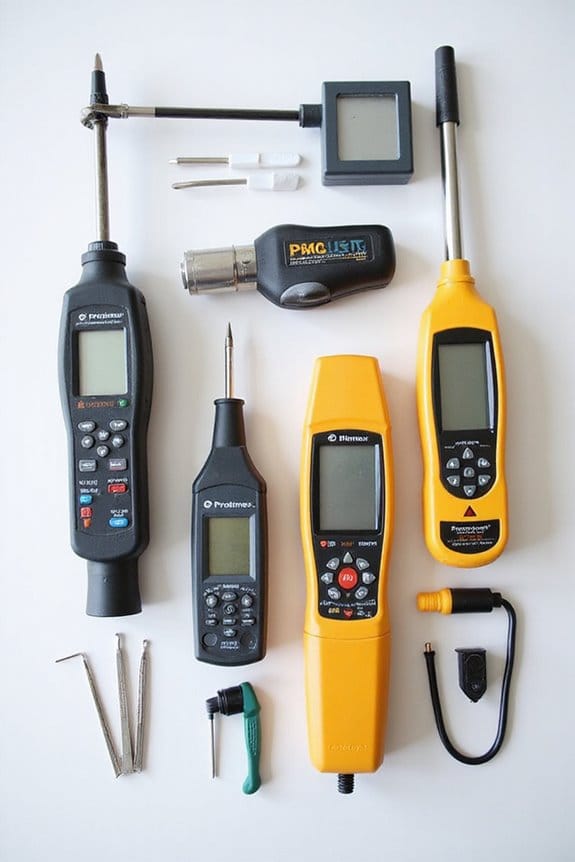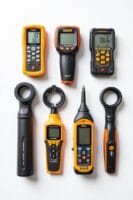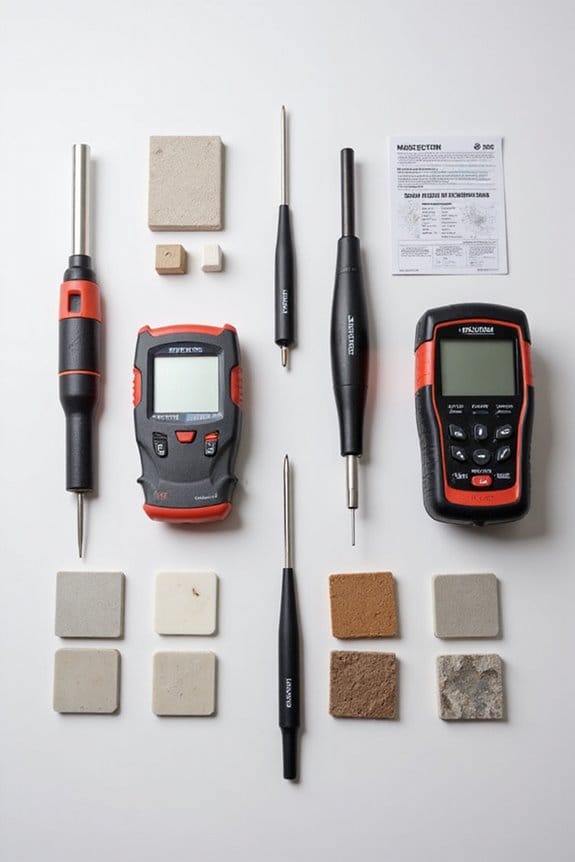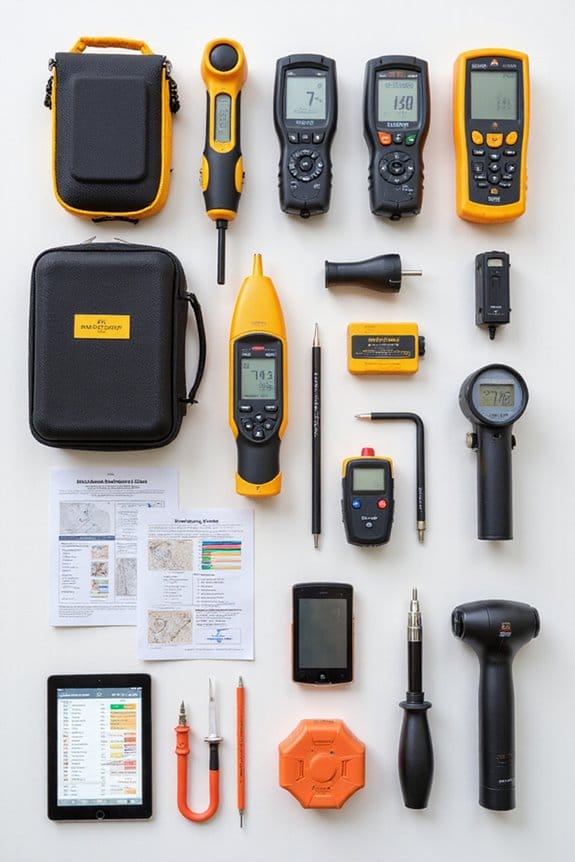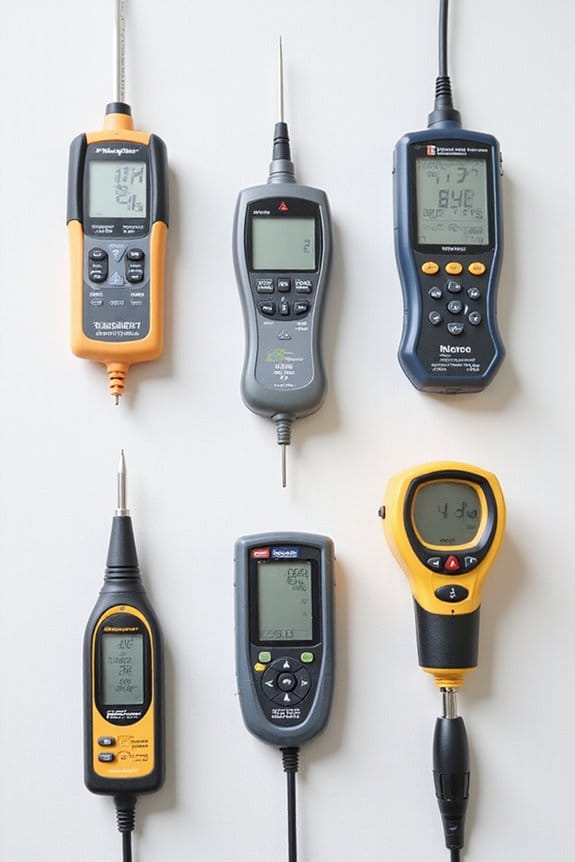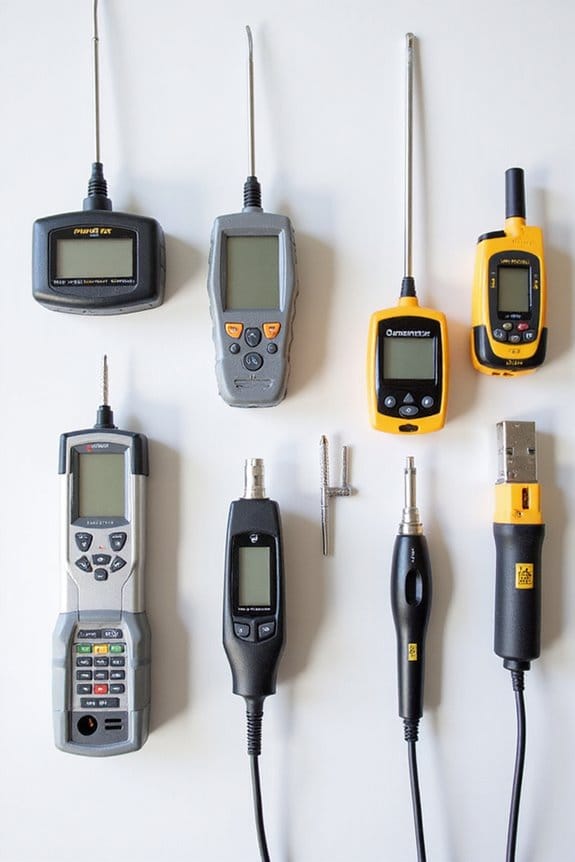I wouldn’t bet the farm on cheap moisture meters being reliable. Here’s why: 1) They can be off by 5-20%, leading to inconsistent readings. 2) Their build quality often feels flimsy, cracking under pressure. 3) Calibration? Forget about it. Most lack the ability to verify accuracy. Sure, they might seem budget-friendly, but they could cost you in the long run. If you’re serious about moisture management, investing in a good meter is wise. Stick around; there’s more to uncover!
Key Takeaways
- Cheap moisture meters often have inaccuracies ranging from 5-20%, leading to unreliable readings over time.
- Low-quality materials and construction can result in a lack of durability and susceptibility to environmental damage.
- Many budget meters lack proper calibration verification, resulting in inconsistent measurements across repeated tests.
- Professional-grade moisture meters offer better reliability, durability, and user-friendly features, ultimately saving costs in the long run.
- The type of sensor used significantly impacts accuracy, with cheaper models often utilizing less reliable technology.
Inaccuracy and Sensor Limitations of Cheap Moisture Meters
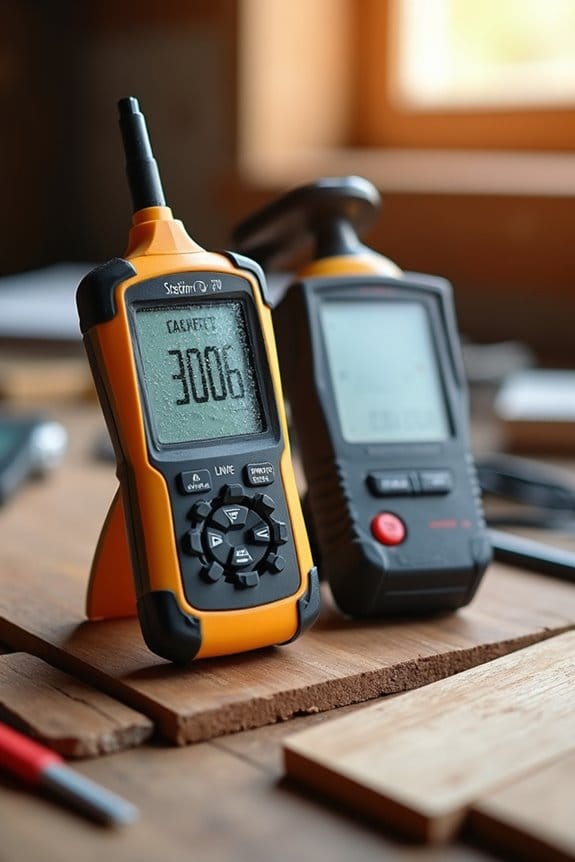
When it comes to cheap moisture meters, you might think you’re saving money, but let me tell you—those savings can come at a hefty price. Here’s why:
- Inaccuracy: Cheap meters can be off by 5-20%. That’s a big deal! A 5% error could ruin expensive hardwood flooring.
- Sensor Limitations: Many low-cost models lack advanced sensor accuracy. They often can’t distinguish between surface moisture and what’s inside the material.
- Inconsistent Readings: You might get different results on the same material, leading to confusion and potential damage.
- Calibration Issues: Without proper calibration, readings can drift over time. That’s like driving with a miscalibrated speedometer!
In short, those budget meters might cost you more in the long run. Trust me, investing in a quality meter is worth it! Additionally, many moisture meter types have features that ensure more reliable readings and greater accuracy.
Durability and Build Quality Concerns
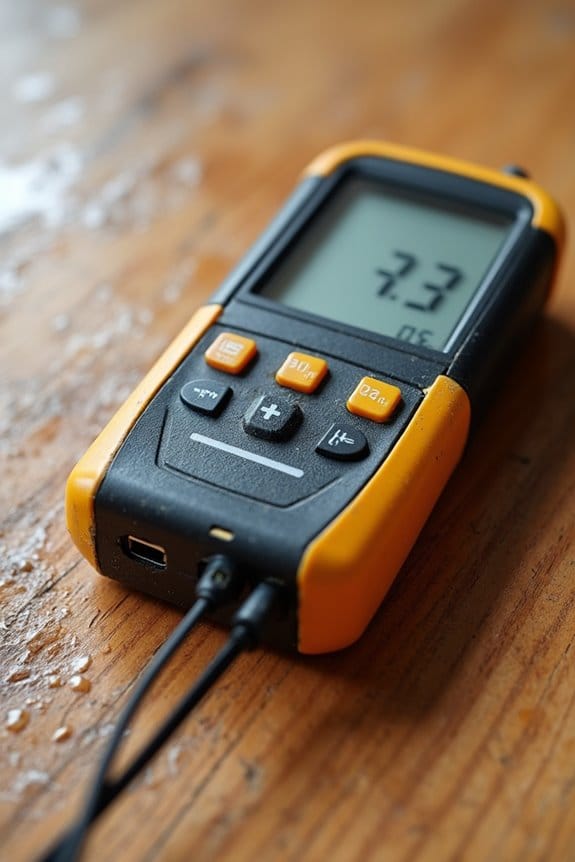
While you might be tempted to snag a cheap moisture meter for your next project, it’s important to reflect on the durability and build quality concerns that often come with these budget-friendly options. Here are a few points to take into account:
- Material Matters: Cheap meters usually have low-grade plastic housings that crack easily. High-quality ones feature shock-absorbing rubber covers.
- Buttons and Switches: Inexpensive models often have buttons that degrade after just 1-1.5 years of use.
- Environmental Resistance: These meters aren’t built for harsh conditions, making them susceptible to moisture and dirt damage.
- Warranties: Lack of a decent warranty reflects serious durability concerns.
In short, while saving money is great, saving on quality can cost you more in the long run! Moreover, durable designs and solid warranties ensure reliability and longevity, which are essential for effective moisture management.
Calibration and Repeatability Issues
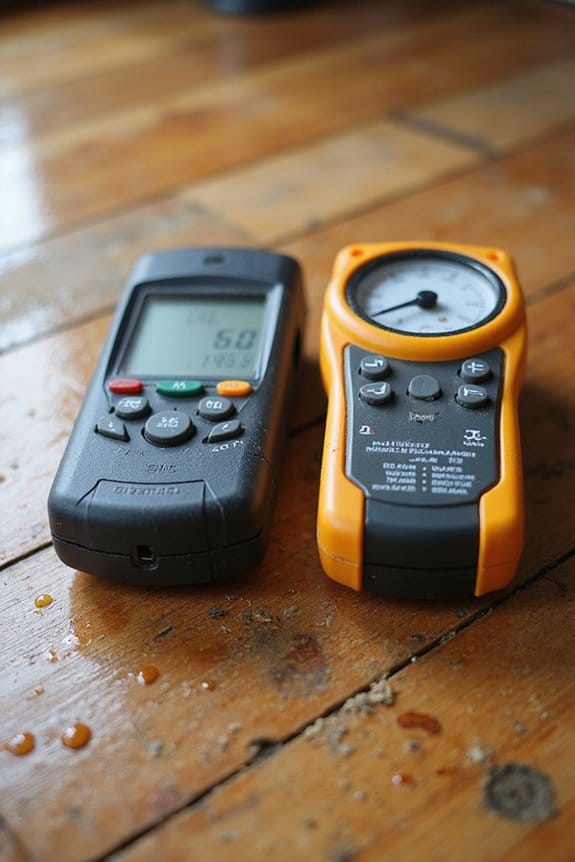
Calibration and repeatability issues can really throw a wrench in your moisture measurement efforts, especially if you’re relying on a cheap meter. Here’s what I’ve noticed:
- Calibration Verification: Many low-cost meters lack a way to verify their calibration. This can lead to readings that are off by several percentage points. Yikes!
- Inconsistent Readings: Cheap meters often provide inconsistent measurements when checking the same material multiple times. I mean, what good is a tool if it can’t give you the same answer twice?
- Measurement Consistency: Without reliable calibration, you can’t trust your meter for critical tasks, like detecting mold. It’s essential to know your readings are accurate and repeatable. So, investing in quality might save you headaches later! Additionally, many high-quality meters offer nine calibration scales that enhance accuracy and versatility across different materials.
Professional Use vs. Consumer Grade Tools
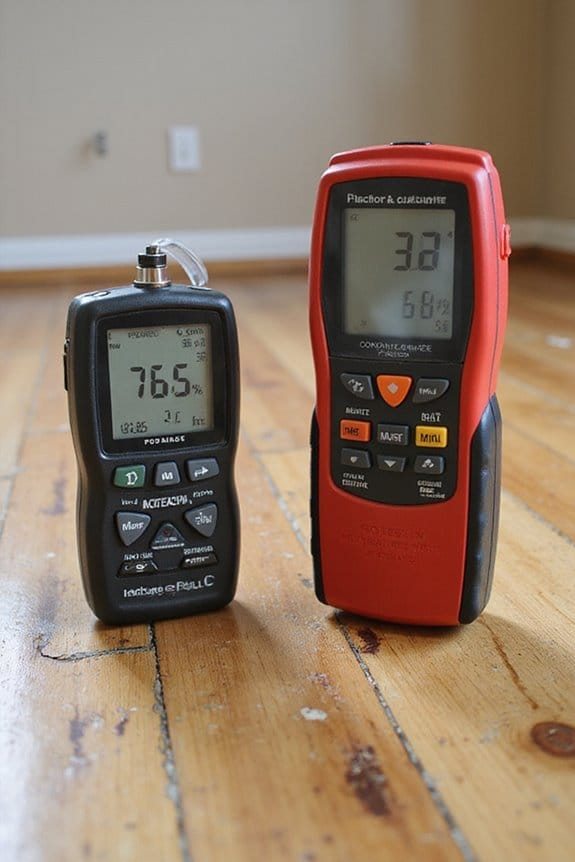
Whether you’re a seasoned professional or just diving into the world of moisture measurement, the choice between professional-grade tools and cheap moisture meters can feel overwhelming. Here’s what I’ve found:
- Accuracy: Professional meters deliver reliable readings across materials, while cheap ones often miss the mark.
- Durability: Professional tools are built to last, withstanding drops and wear, unlike their flimsy counterparts.
- User Friendly Features: Professional models often include multifunctional sensors and data logging, enhancing operational efficiency.
- Cost Over Long-Term: While cheap meters are tempting, their inconsistent performance can lead to costly callbacks. Regular monitoring helps protect property value and integrity, making moisture meters vital for home maintenance.
In my experience, investing in a professional meter pays off. You’ll save time, money, and possibly your reputation. Trust me, you don’t want to be the one calling for a redo!
Types of Sensors and Their Impact on Reliability
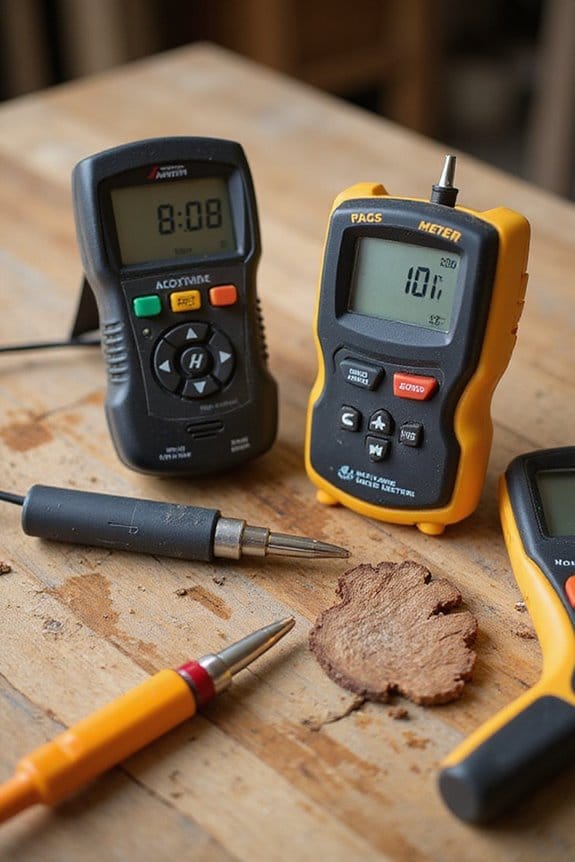
Choosing the right moisture meter isn’t just about budget; it’s also about the type of sensor it uses. Let’s break down some common types:
- Capacitive Sensors: These detect moisture through electrical capacitance changes. They’re reliable and corrosion-resistant, but their accuracy is around ±3% to ±5%.
- Resistive Sensors: The budget-friendly option, they measure resistance between probes. However, they can corrode and only offer about ±10% accuracy.
- TDR Sensors: The crème de la crème, providing accuracy of ±1% to ±2%. They’re pricey but durable.
- FDR Sensors: Similar to TDR, they’re faster and slightly less accurate (±1-3%) but also less common in cheap meters.
Choosing wisely based on your needs is essential, especially considering the importance of measurement accuracy in preventing moisture-related damage!
Measurement Range and Practical Limitations
When it comes to moisture meters, understanding their measurement range and practical limitations can save you a lot of headaches. Here’s what you need to know:
- Limited Measurement Range: Cheap meters often can’t measure below 9-10% moisture, making them less reliable for fine woodworking.
- Accuracy Issues: These meters might have a ±5% accuracy, which can lead to significant estimation errors. A reading of 10% could actually mean anywhere from 10% to 20%.
- Practical Usability: Most cheap models use pin-type sensors that can damage materials. Plus, they often lack calibration features, making them less consistent.
In short, while cheap moisture meters can work for rough tasks like checking firewood, they aren’t the best choice for precision projects.
Frequently Asked Questions
How Do I Choose the Right Moisture Meter for My Needs?
Choosing the right moisture meter’s like picking the perfect tool from a craftsman’s chest. I weigh moisture meter types against my needs, ensuring reading accuracy aligns with my project’s demands for the best results.
Can I Use a Moisture Meter for Different Materials?
Absolutely, I’ve used moisture meters on various materials, including wood materials and soil moisture. Just make sure to choose a model that’s calibrated for the specific material to get accurate readings and avoid potential issues.
What Is the Typical Lifespan of a Cheap Moisture Meter?
Imagine a fragile flower wilting quickly; that’s a cheap moisture meter’s lifespan. Lifespan factors like exposure and meter maintenance affect durability, often leaving me replacing them within months instead of enjoying reliable readings for years.
Are There Any Specific Brands Known for Reliable Moisture Meters?
When I consider moisture meter comparisons, brands like Wagner and Protimeter stand out for their reliability. I’ve found that investing in reputable brands pays off in accuracy and durability, making them worth the price.
How Often Should I Calibrate My Moisture Meter?
When I tested grain samples daily, I quickly learned calibration frequency was essential. I calibrated before each sample using specific calibration methods to guarantee accuracy. Regular checks kept my readings reliable, especially in harsh environments.

